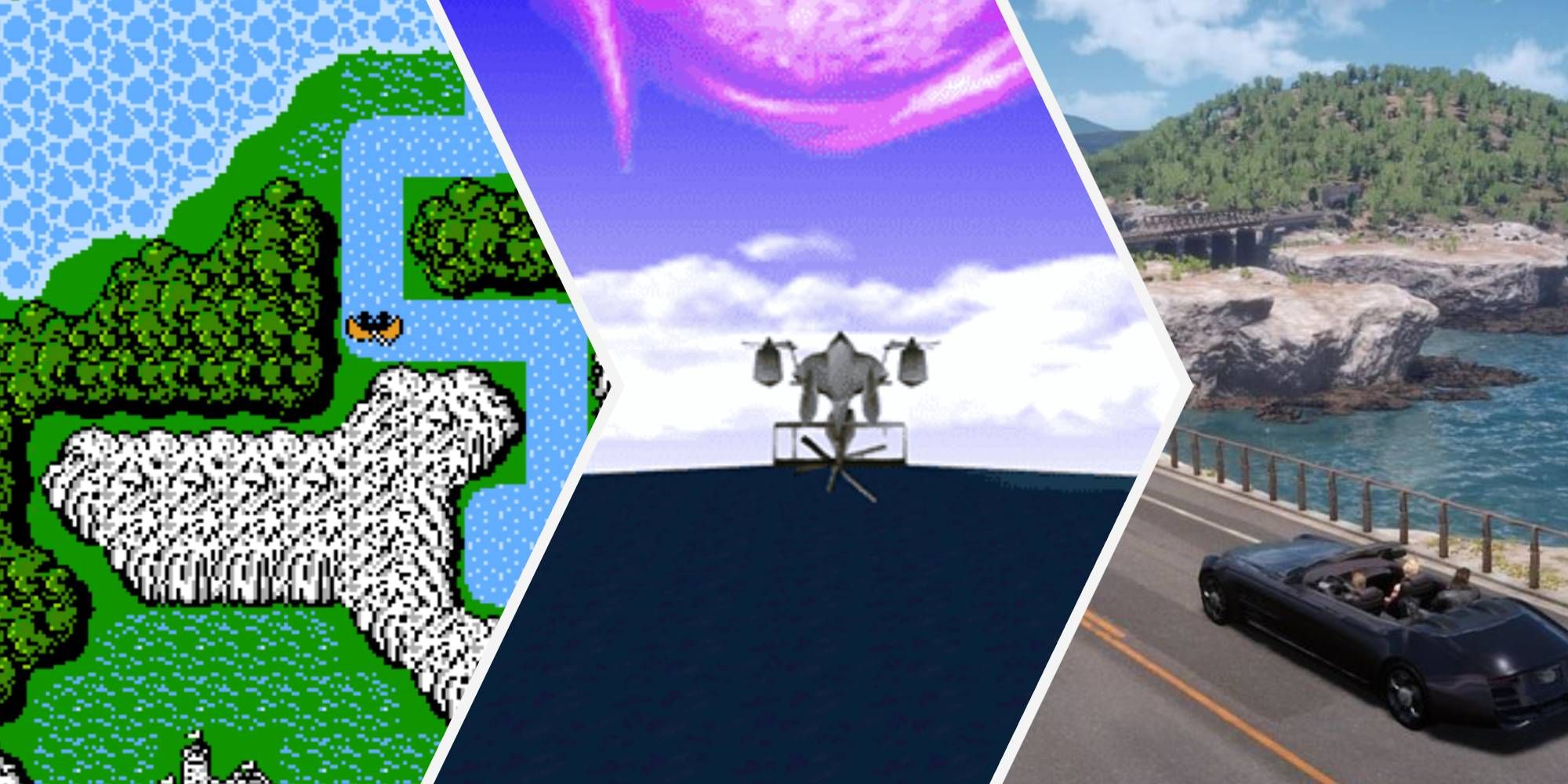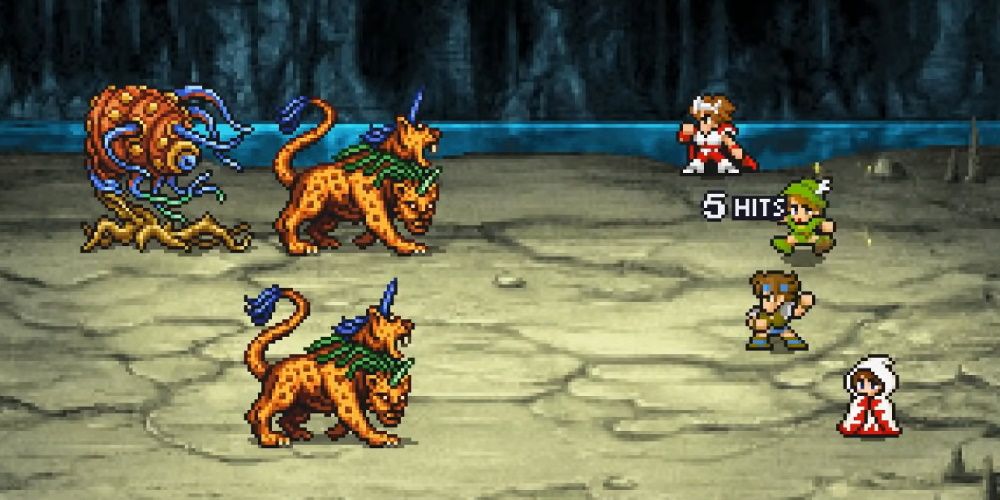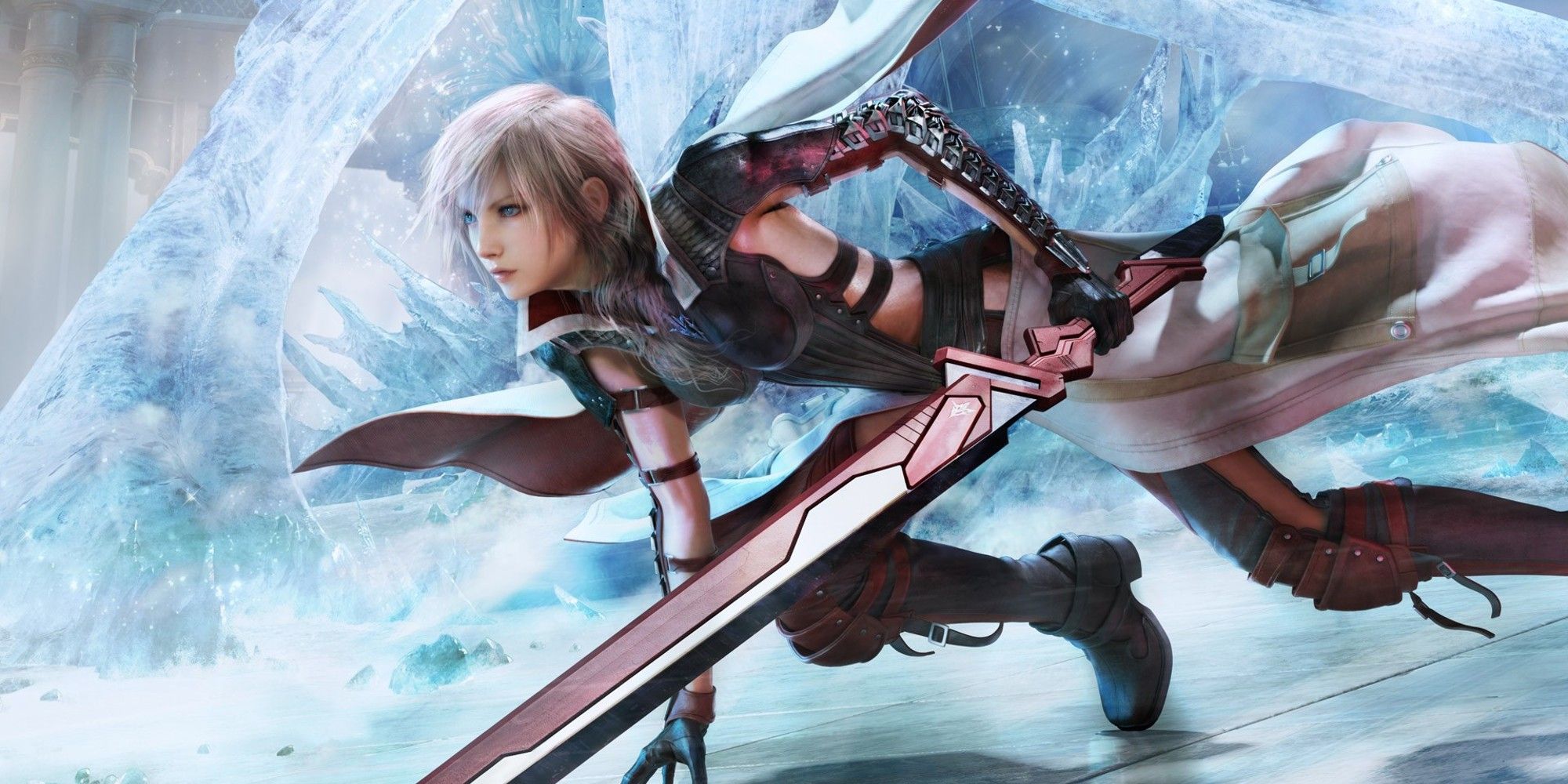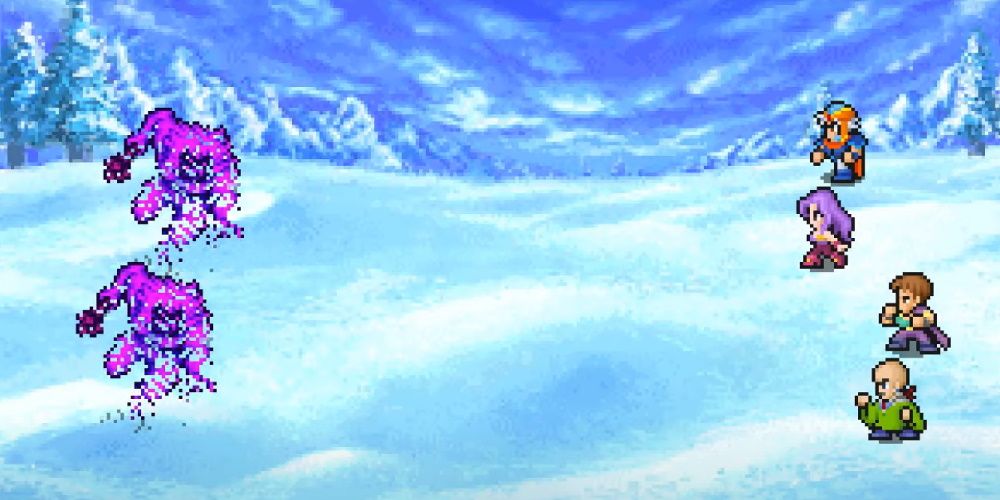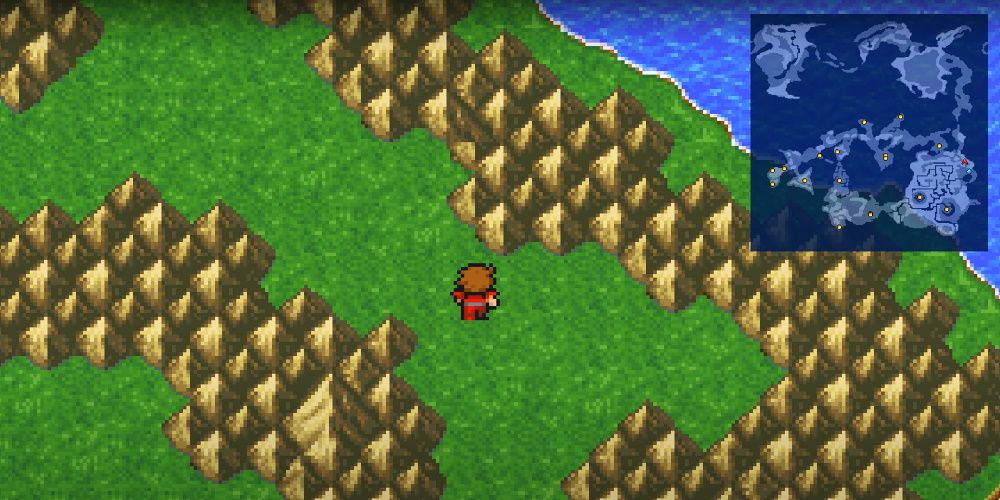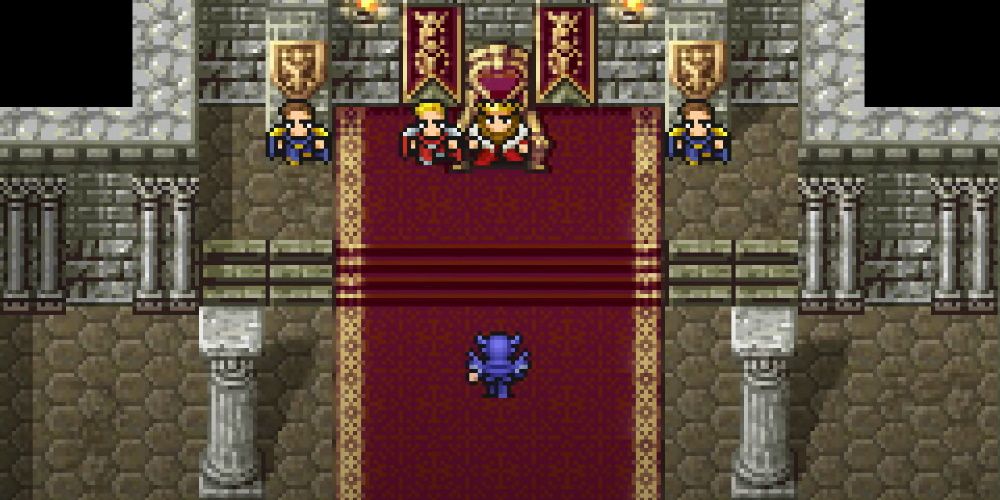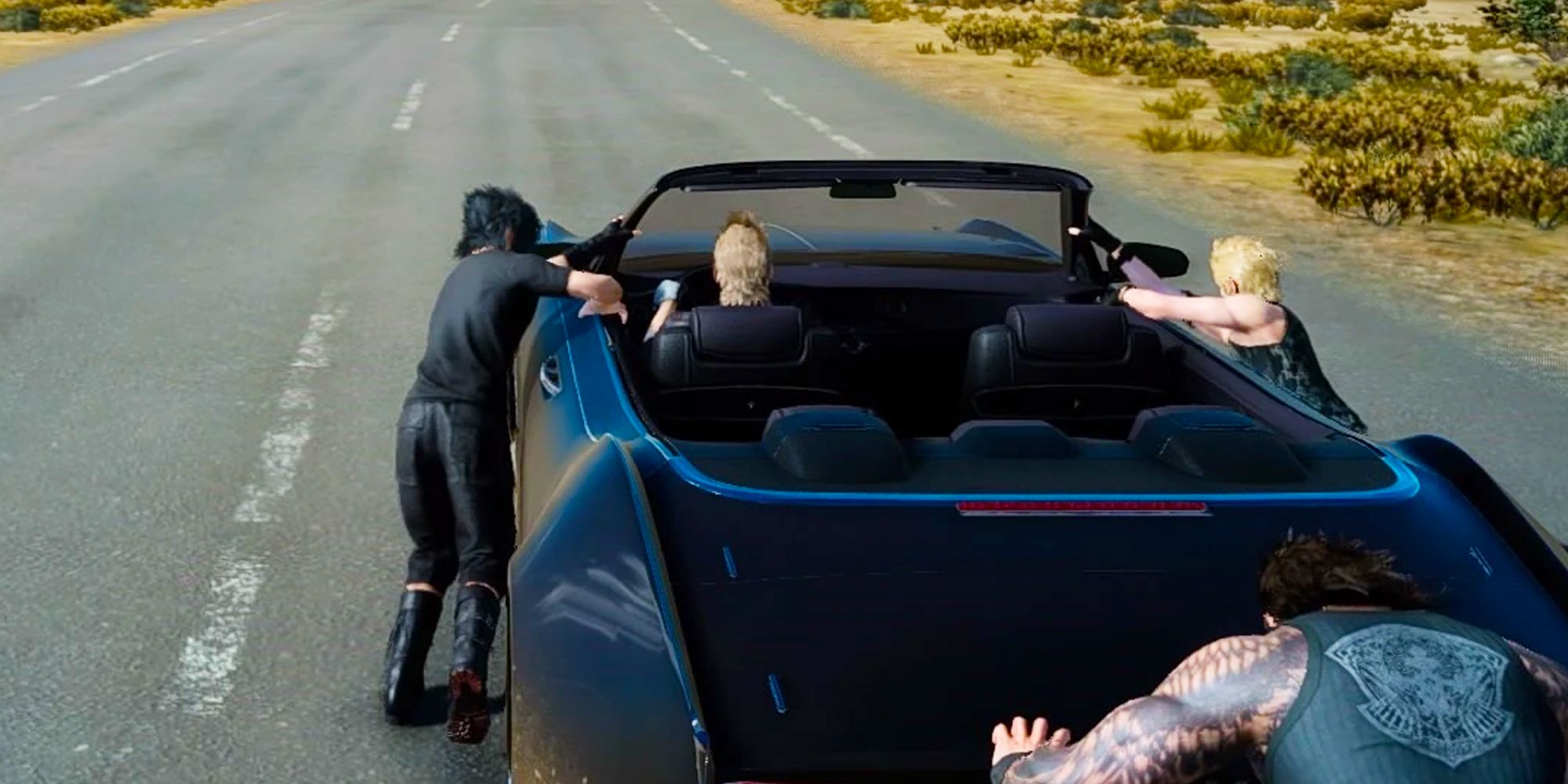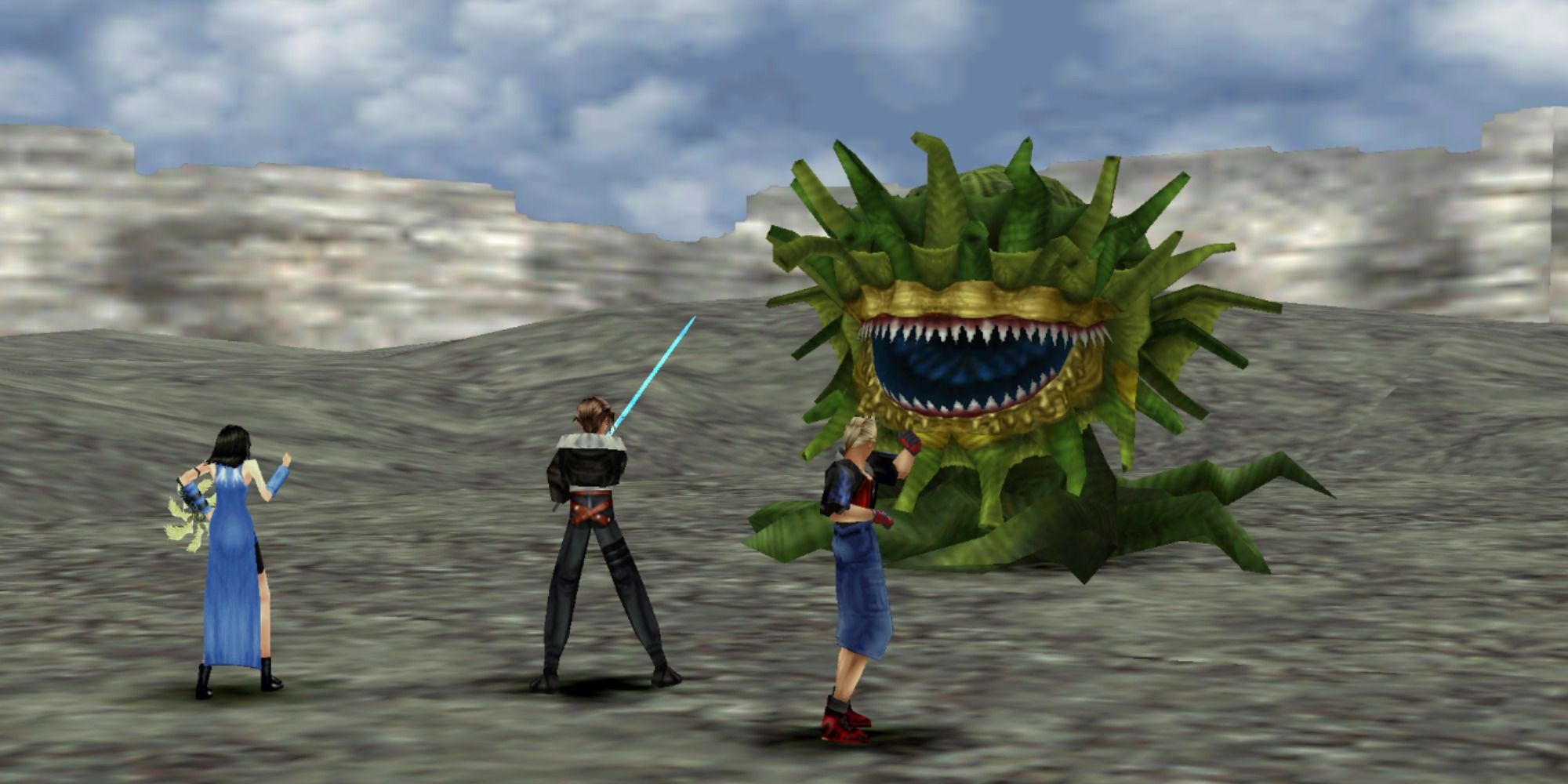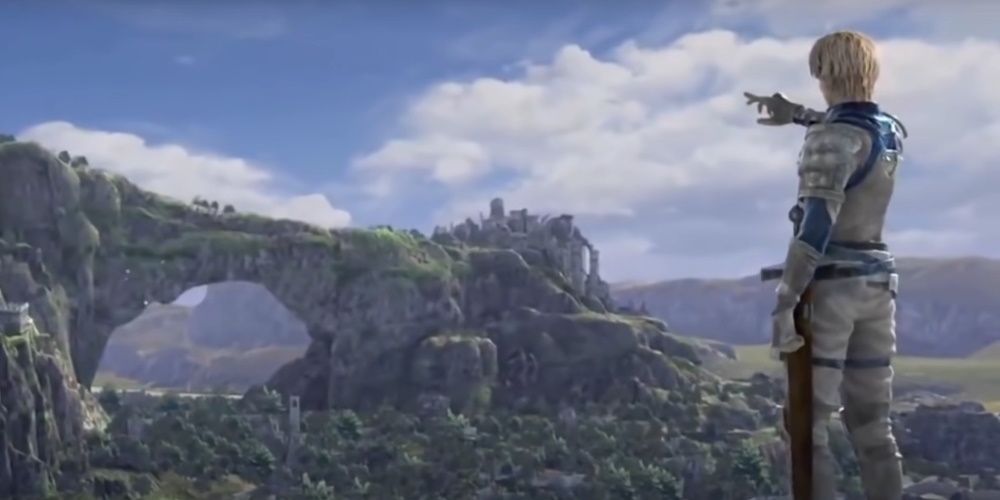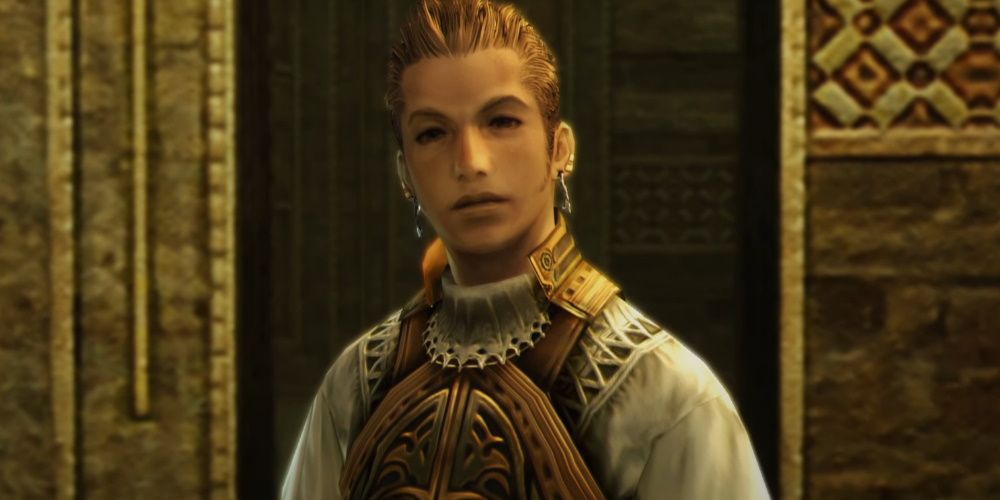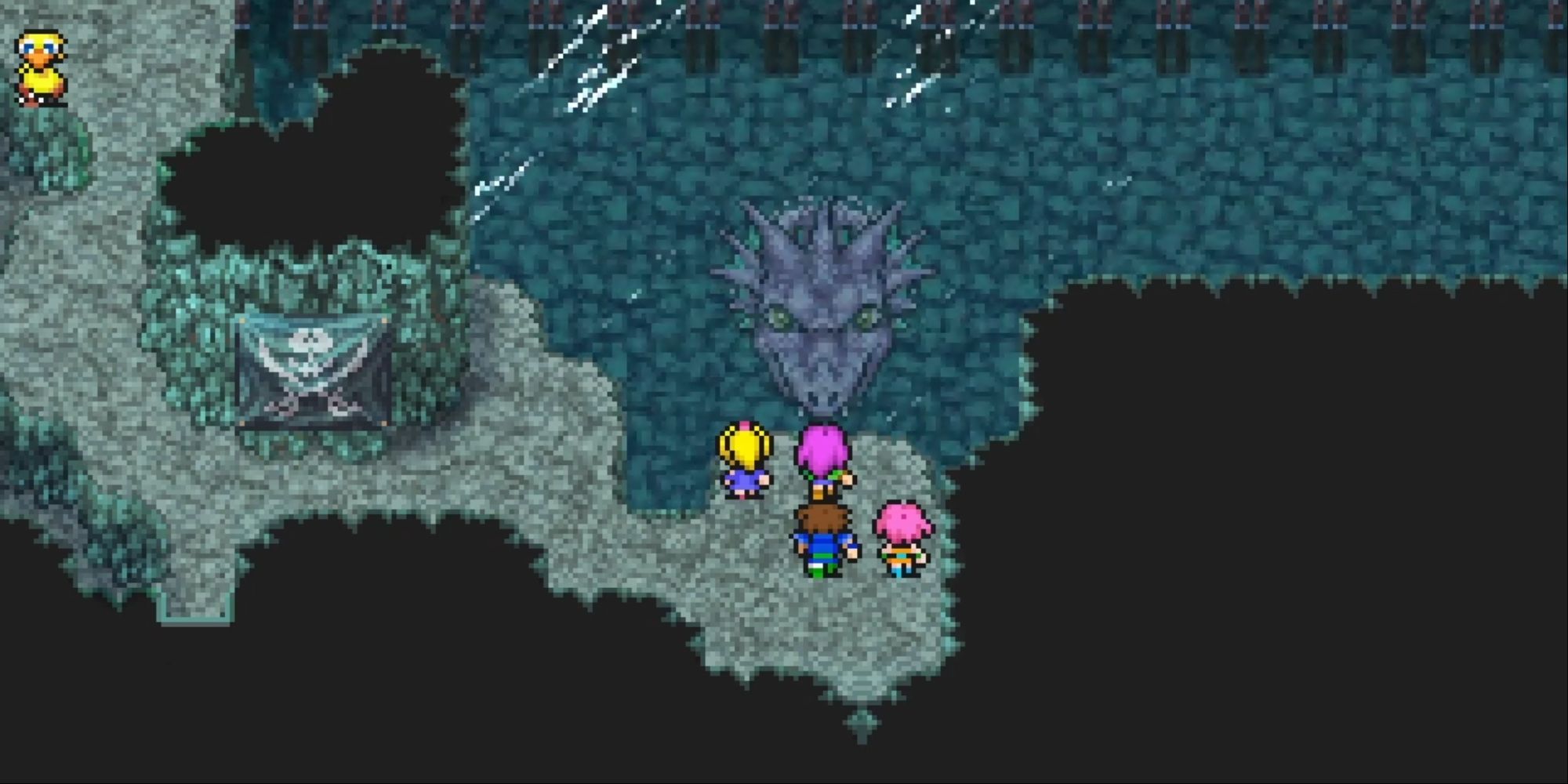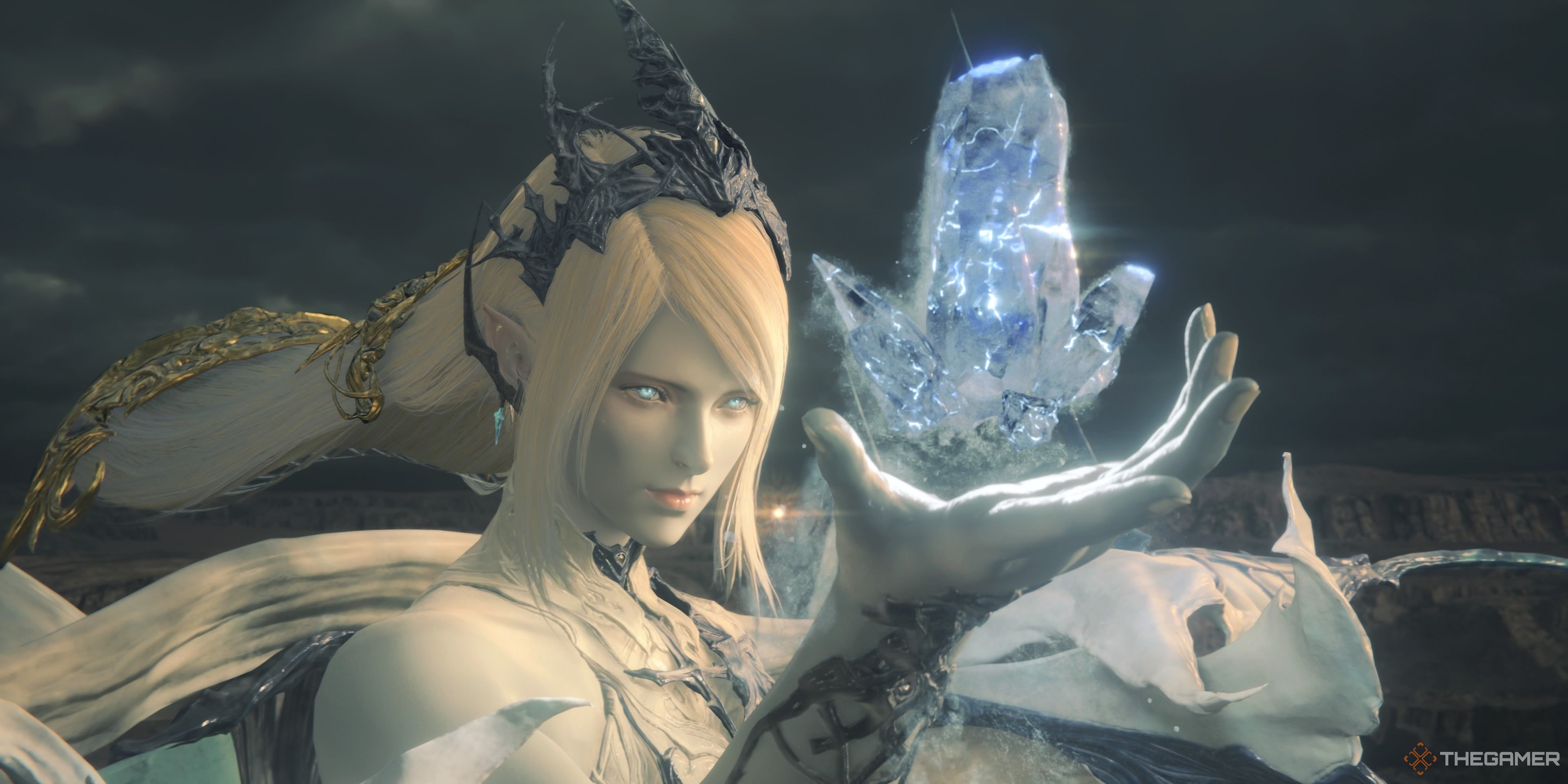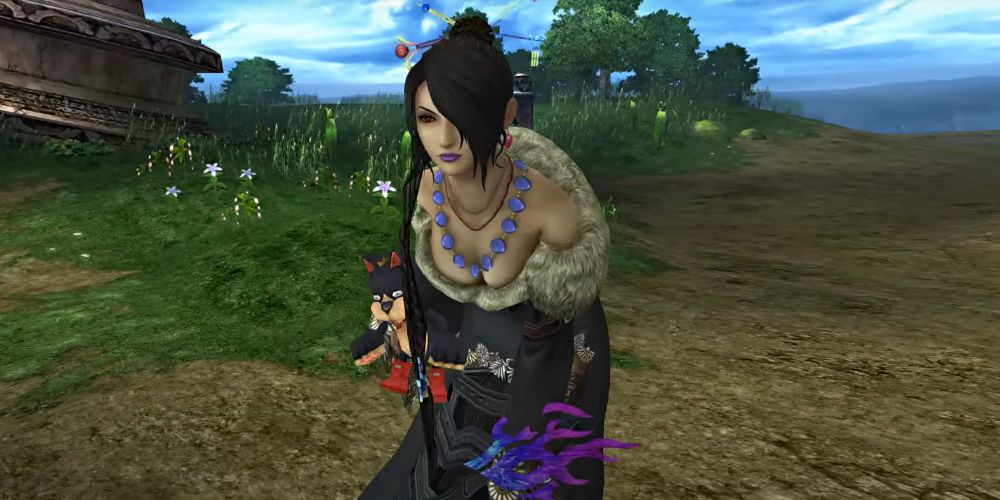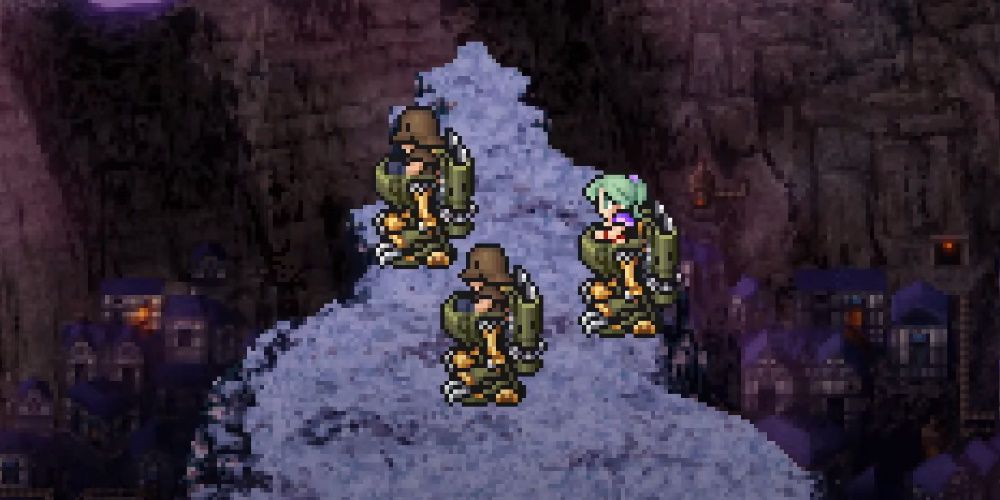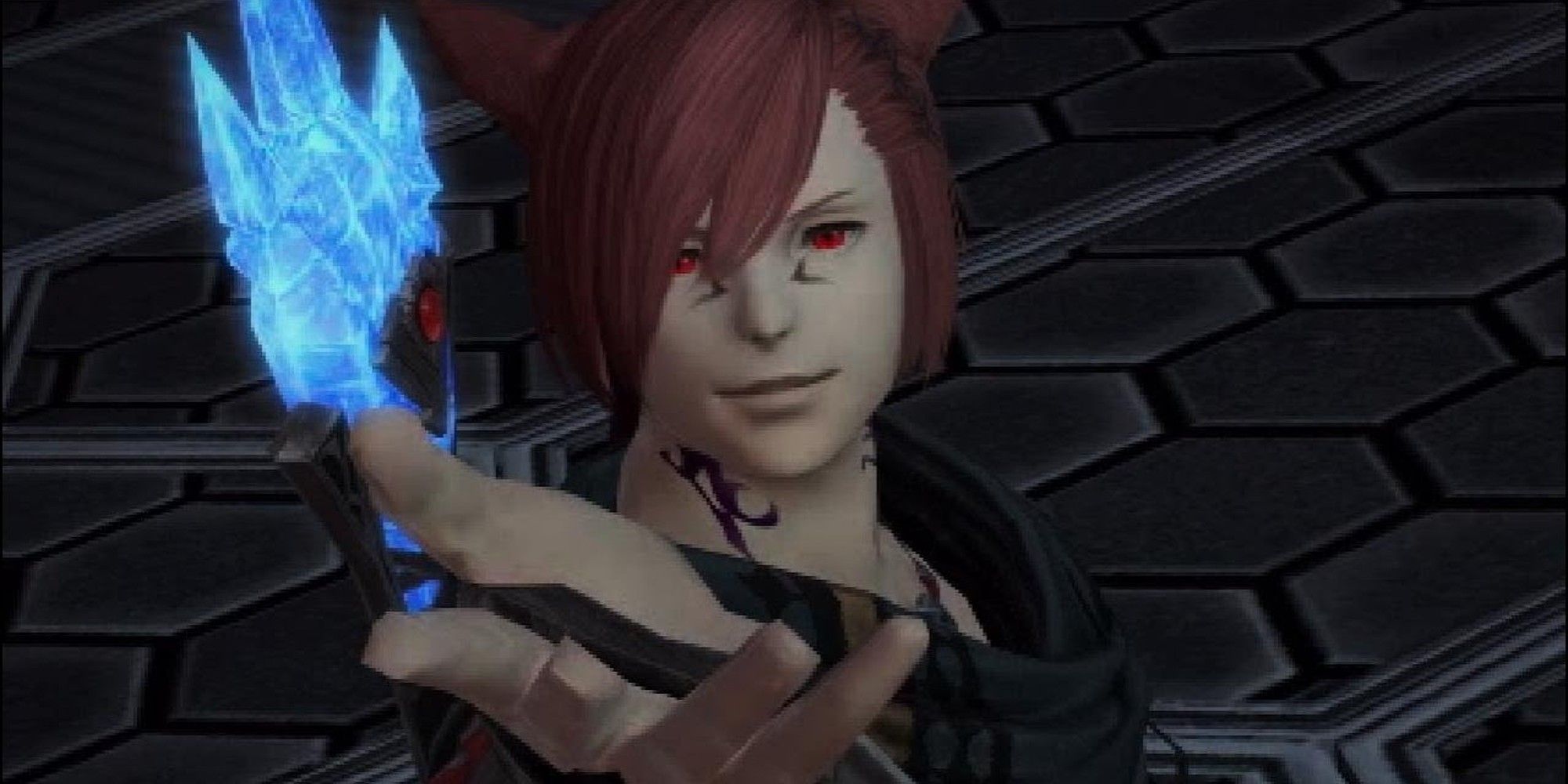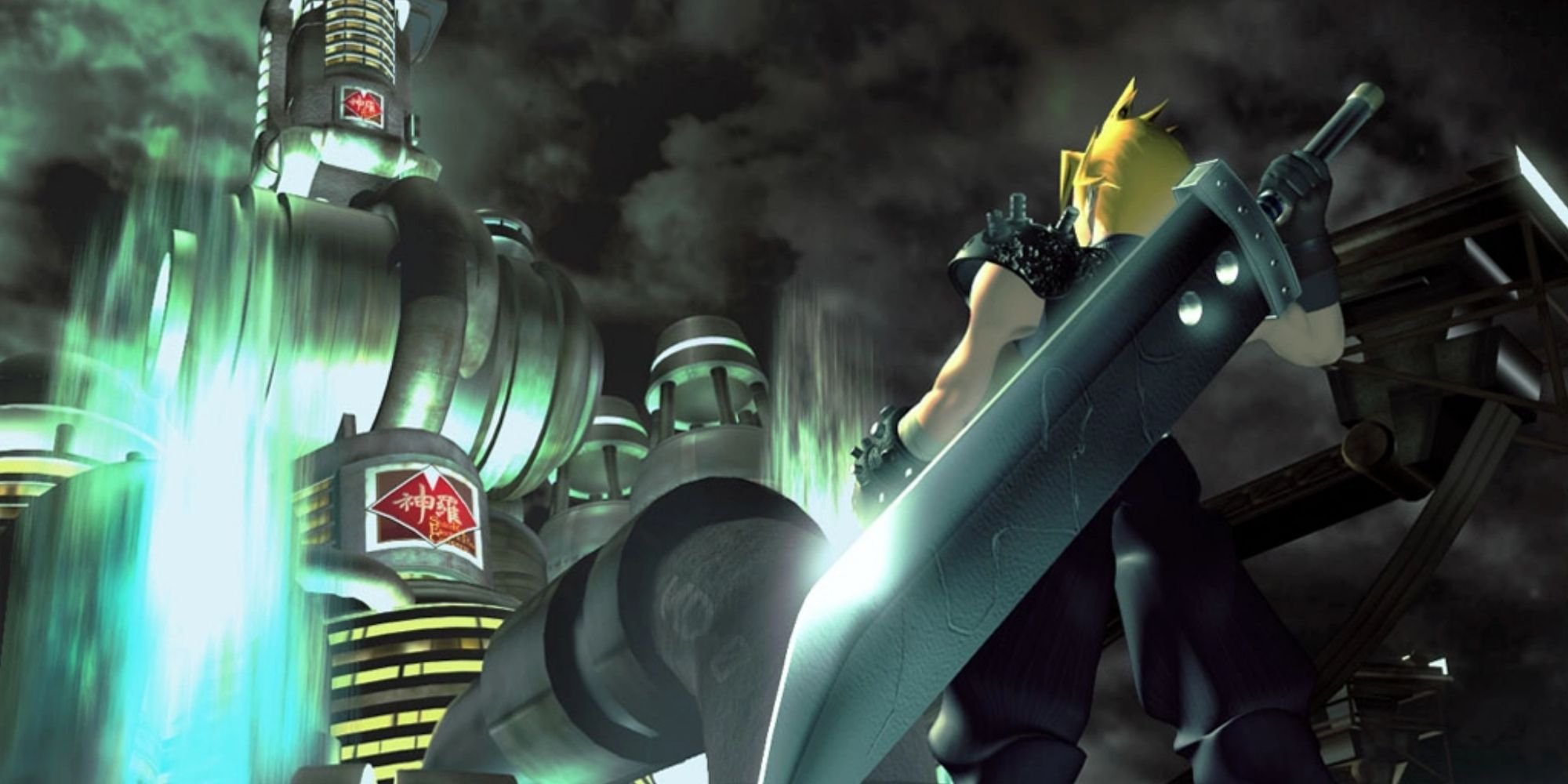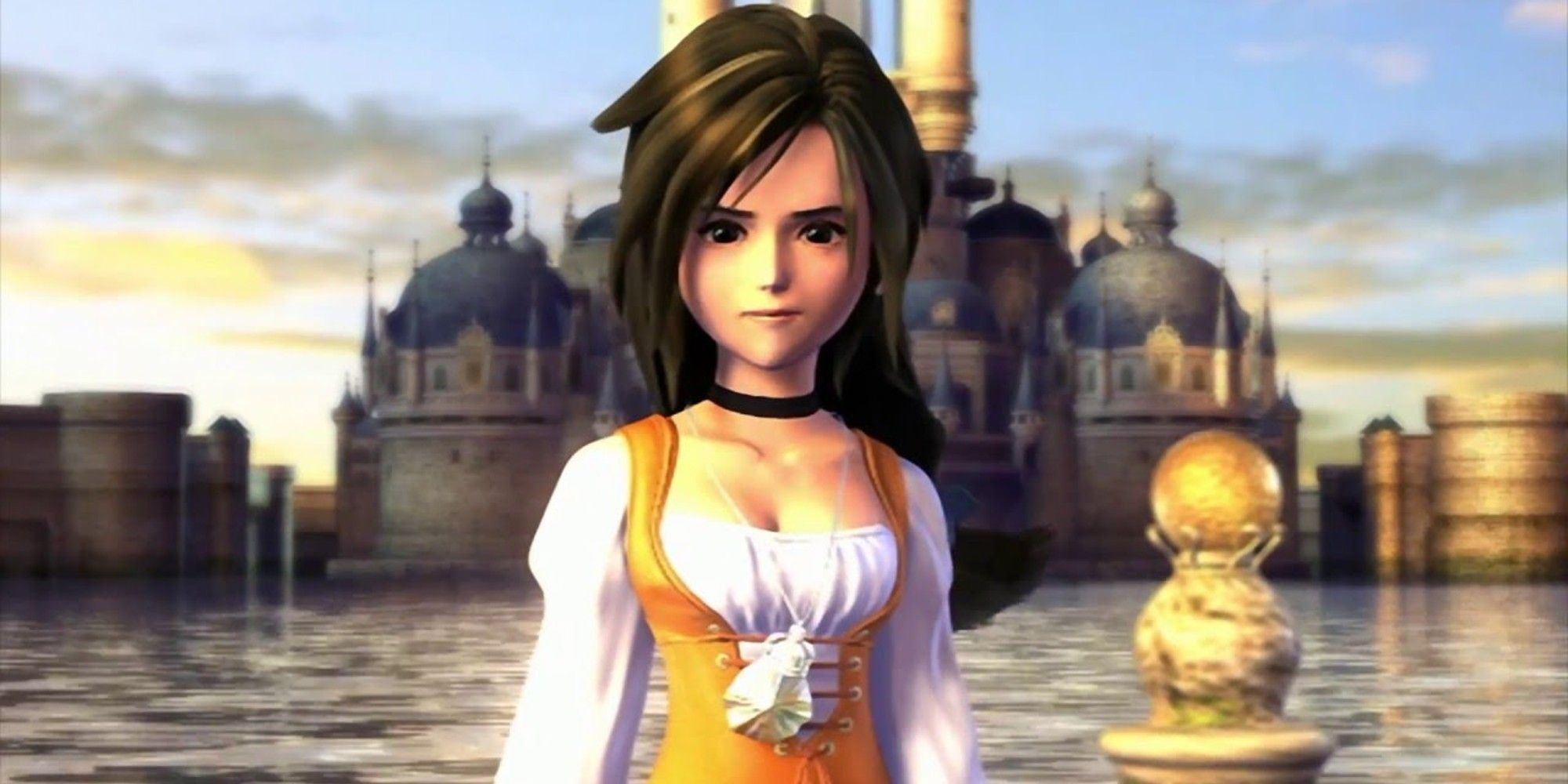There's only one thing scarier than the fact that the Final Fantasy franchise is, as of this writing, 36 years old. It's the fact that, if you happen to read this article years into the future, it will be that much older. If you're fairly young, that might sound mythic; if you're old enough, on the other hand, you may begin to view yourself as mythic. Either way, it's wild.
If there's one thing Final Fantasy fans are known for, it's opinions. How could we not have opinions? There are 16 mainline entries and counting, plus a plethora of spinoffs and even several direct sequels. Today, we'll be sticking with the numbered fare, the big, celebrated, venerated, sometimes reviled, chapters that ultimately define the series. From the NES original to the PlayStation 5, we're counting down to the FF crown.
16 Final Fantasy 3
Let's get something out of the way right off the bat. Final Fantasy 3 is not a bad game. It's a rough-around-the-edges effort to follow in the footsteps of Dragon Quest 3, intentionally or otherwise, with a class-swapping job system that lets your party take on the mantles of a wide array of fantasy archetypes. Fearless knights, spell-slinging mages, cunning thieves, and more.
That 'and more' is part of the problem. Final Fantasy 3 rather bites off more than it can chew, with over two dozen interchangeable job classes, a high number of which are either impractical as a rule or only useful in highly specific situations. This hurts the game's central concept, and the largely unengaging storyline doesn't help. Not that we'd expect much from the NES era, but one of its peers in that trilogy had already done things better in that regard.
15 Final Fantasy 13
Well, at least Final Fantasy 3 didn't try to make its story the main attraction. FF13's got the opposite issue; at every turn, it desperately seeks to engage, and if that pans out, more power to you, but it sure didn't click for us. It's not that everyone in this cast is unlikable; in fact, Lightning, Sazh, and Fang are a trio of decent people caught within the cruel fate of a terrible tale.
There are bright spots. While the gameplay takes forever to open up, and the leveling system is basically Final Fantasy 10's Sphere Grid without so much as the faintest glimmer of player-dictated customization, the combat is smooth and satisfying. Plus, best battle theme in the series? Best battle theme in the series. It's just a shame about... so much else.
We're not ranking the sequels, but for the record, we think Final Fantasy 13-2 is the superior game overall, even if its villain is downright dreadful. As for Lightning Returns... it's certainly a video game. We'll give it that.
14 Final Fantasy 2
Final Fantasy 4 is frequently celebrated for bringing the first full-fledged story to the series, but with respect, that's a disservice to Final Fantasy 2. Sure, it's simple fare. And yes, 'Guy speak beaver' is one of perhaps three things Guy ever says. But FF2 deals with loss to an extent that's just not seen in many games of its era, and it sticks with those losses in a way that still surprises first-time players.
Foremost among the common critiques toward the game is its bizarre stat-building system which eschewed any semblance of a traditional approach in favor of a system that - until the recent Pixel Remaster - was so oddly unbalanced that players were better off having Firion and friends beat themselves up in battle to grow stronger.
You could even suffer stat reductions if you didn't do things just so. These issues have largely been rectified, but the awkward mess of the core experience persists.
13 Final Fantasy
There's a convention among many fans of far more franchises than Final Fantasy that states you can't not rank the original entry highly, purely on the grounds that it's the first. Eh. Final Fantasy is fun. There's a timeless quality to choosing classes for your four OG Warriors of Light, sticking with those classes (and their upgrades) the whole way through, and seeing how well you fare for it. The simple adventure works just fine for what it is.
That doesn't mean we don't think a bunch of titles in Final Fantasy's history haven't surpassed it! This is a perfect pick-up-and-play old-school RPG, but it simply lacks the sort of depth that makes future entries shine. Even so? That moment half an hour in, when you cross the newly-repaired bridge, the legendary Final Fantasy main theme kicks in, the game's title flashes on the screen? Just as epic today as it was 36 years ago.
12 Final Fantasy 4
We promise we'll stop being so mean to the 2D era after this. Final Fantasy 4's leap from 8-bit to 16-bit architecture was just as big a jump narratively as it was graphically, with a cast of characters far more well-defined than anyone who came before them. The heroic Cecil, the conflicted Kain, the mystic Rydia, and all the rest. This is pulp fantasy at its finest, and the introduction of the Active Time Battle (ATB) system helped the series stand out from its contemporaries.
There's a love-or-hate goofiness to the way so many characters sacrifice themselves only to be revealed as fine later on, and we aren't in love with the Saturday morning cartoon nature of it all. At least they went so completely ham with Cid that it circled sheer silliness and somehow turned into awesomeness - the man was holding a bomb while he jumped from an airship to the ground below and came away unscathed.
11 Final Fantasy 15
On the one hand, you've got to admire any piece of media that begins with four chums pushing their out-of-gas luxury automobile down a road to the tune of Florence and the Machine's cover of 'Stand by Me'. On the other hand, what ought to have been Final Fantasy 15's actual beginning was sliced off and turned into a Hollywood movie with a 12 percent rating on Rotten Tomatoes, and that's only the start of a lengthy list on how Frankensteinian this game becomes.
Final Fantasy 15 is the resurrected corpse of what was, at one time, Final Fantasy Versus 13. Whereas its earlier form would have been an operatic tragedy, the developers behind FF15 went for more of a charming road trip vibe for much of the game's runtime. Hey, no shade; these are probably the best parts, even if the actual storyline barely moves past its one-fifth mark in those first eight of fourteen (!) chapters.
The trouble truly starts when those remaining chapters are relied-upon for the remaining four-fifths, and their breakneck, hyper-linear pace is a veritable trainwreck as a result. Robust post-launch content helps, and the game's ending is shockingly good by contrast, but this Final Fantasy will forever feel at odds with itself, a fun if flawed open world extravaganza that then searches for the ghost of Versus 13 and comes up painfully short.
10 Final Fantasy 8
Final Fantasy 8 is a good game that has the somewhat unfortunate distinction of launching at a time when Square was tossing out great ones left and right. As an audiovisual experience, there was nothing else like it in its heyday. It's got arguably the best summoned monsters system in the series, and its often-maligned junction system is, frankly, woefully misunderstood. (Hot tip: you don't need to draw 100 of any spell. There are far better ways to get those than in battle.)
Protagonist Squall Leonhart portrays a pretty realistic depiction of the kind of antisocial behavior that arises among justifiably troubled adolescents, too, and many of the big setpiece moments land. FF8 stumbles elsewhere, with some jarring plot beats, a fairly bland love interest for Squall whose relevance only grows as the story unfolds, and a story that relies on the strength of that middling romance's portrayal above all.
Triple Triad, though? Ten out of ten, no notes.
9 Final Fantasy 11
The franchise's first of two forays into the field of MMORPGs, Final Fantasy 11 takes full advantage of the increased allowance in scope to deliver the deliciously lore-stuffed realm of Vana'diel. Final Fantasy had long been famed for its cool worlds by 2002, but it took a project of this magnitude to go all-in. The depth of Vana'diel's many cultures, historical events, and the political machinations between its ruling parties blew minds at the time.
Infamously, FF11's difficulty for solo players at launch was so great that it was entirely possible to level down if you performed poorly, and so many monsters were capable of felling single adventurers in seconds. It was a hostile environment unless you had a group of dedicated friends, though this has been toned down significantly through the years, and the introduction of AI-controlled NPC party members has made FF11 far more approachable.
8 Final Fantasy 12
The world of Ivalice is as much the main character of Final Fantasy 12 as any individual person... for better and worse. There's no shortage of intriguing souls - Balthier, Basch, and Ashelia are all charismatic in their own ways, and the villainous spin on Cid is a fan-favorite antagonist even if the primary foe of Vayne Solidor pales in comparison. Perspective lead Vaan probably gets more hate than he deserves, but he's still a weak link to be sure.
But for all the noteworthy characters, no one really gets a satisfying arc in FF12, a game so much more interested in showing off its (spectacular) setting than maintaining proper pacing for a story with definite highs but far too many lows.
That said, the Gambit system is one of gaming's best efforts to handle computer-controlled party members without sacrificing player input, and it's a crying shame it hasn't shown up since. If you've never played FF12, go with the 2017 remaster; The Zodiac Age fixes many of the game's shortcomings, even if it can't resolve its poorly-paced main scenario.
7 Final Fantasy 5
No other game on this list has benefited more from a retranslation than Final Fantasy 5. It skipped the West at the time of its release, premiered here with a messy port riddled with a bland script some years later, and then enjoyed a sublime fresh localization on the Game Boy Advance. FF5 was always on the brink of feeling like the series' most rambunctious, swashbuckling adventure, but it wasn't until then that its cast felt fun.
That's FF5 in a nutshell, especially now - fun. It's a game about a neat little group of characters who embark on an old-school high-fantasy quest and revel in it along the way. The job class system is so good that fans get together every year for randomization runs where they're stuck committing to specific builds. Final Fantasy 5 Four Job Fiesta capitalizes on this backdrop to raise money for charities, too, so it echoes the same feel-good fun time of the game itself.
6 Final Fantasy 16
The latest Final Fantasy puts the spotlight on its hero more than any previous entry, with the story of Clive Rosfield front-and-center in every sense. If Clive wasn't an enjoyable guy, this would spell disaster. Thankfully, he's terrific, his arc is terrific, and his voice actor Ben Starr? Yep, terrific. FF16's also the most medieval the single-player games have gone since the just-listed Final Fantasy 5.
It's a refreshing change of pace, populated by believably written people who belong to a variety of warring nations in a time of peril. Really, we can't speak highly enough of the script, nor the collection of stunning setpieces that aren't just the most bedazzling in Final Fantasy; they even give modern God of War games a run for their money.
Final Fantasy 16 is a purely action-driven combat affair, with stripped-down 'RPG elements' and a world that might have benefited from an increased focus on exploration, especially coming off of FF15, which is at its best when players are free to roam. But if you take a shine to the overall package, we promise it's more than worth your time - it's the best non-MMO Final Fantasy in over 20 years.
5 Final Fantasy 10
We tend to stick with digits over Roman numerals here when discussing Final Fantasy, but if there's one mainline game that admittedly makes things look a little silly, it's Final Fantasy 10 - we can't argue how much cooler it looks when written as Final Fantasy X. It just hits different, right? But we digress. Whatever you call it, the tenth one's a winner, with a vibrant world suffering beneath the weight of a creature whose appearance serve as alleged punishment for past sins.
The world of Spira's solution to this - send capable young summoners to their deaths to temporarily redeem humanity on their behalf - forms the crux of an emotionally charged story with one of the best endings in the gaming medium. The deceptively complex Sphere Grid, weapon and armor ability customization, and the excellent blitzball mini-game are all just icing on the cake, though we'd still be better off without the rough voice direction and a handful of characters who border on pure caricature.
4 Final Fantasy 6
For as long as there have been Final Fantasy 7 diehards, there have been Final Fantasy 6 diehards screaming from rooftops for everyone to ignore the former group and come to the light. While we won't go quite that far, we will still label FF6 one of the greatest video games ever made - and really, what higher praise is there than that?
FF6 stars an ensemble cast, a veritable who's-who list of memorable characters who unite in an effort to stop a terrible empire, but truly come together in the face of a far more overwhelming (not to mention clownish) evil further on. The split between a 'World of Balance' prior to the nefarious Kefka Palazzo's earth-shattering act and the more somber 'World of Ruin' thereafter is peak Final Fantasy vibes, and the undercurrent of hope in the face of adversity only sweetens the deal.
3 Final Fantasy 14
Final Fantasy 14 is the epitome, the last word, on the phrase 'it starts off slow, but I promise it gets good later on'. In the age of binge-watched television and an endless stream of games, that can be a thoroughly off-putting sentence, but trust us, FF14 really is worth the time investment. Even if you've never touched it, you're probably familiar with how disastrous it was in its original form, and the incredible comeback story of its successful relaunch.
Even then, the content introduced in that 2013 relaunch ranges from decent to almost distastefully dull - but once you reach Heavensward, the first full expansion, so much of what didn't work earlier is replaced with a heartachingly superb tale. The characters previously a bit whatever, begins to grow into the deepest-written and most enjoyable secondary cast in series history. Masayoshi Soken's soundtrack is outstanding, and there's such richness to the gameplay for most job classes.
How much you'll get out of the rest of Final Fantasy 14 will vary per your degree of interest in multiplayer shenanigans, but the bulk of the main story can now be played entirely solo, so you barely need to dip your toes into loads of FF14's 'MMO-isms' if you don't want to. On the flip side, if you do want a game with strong MMO elements, you've got one right here.
2 Final Fantasy 7
No other role-playing game has inspired nearly as expansive a subseries as Final Fantasy 7, the groundbreaking blockbuster goldmine that sprung Square from 'one of those RPG developers' into the global spotlight. FF7 is one of the most influential games ever made; its general gameplay language and melodramatic, symbolically mighty storytelling were copied countless times in the several years after its arrival.
Continuations like the sequel film Advent Children and Zack-leading Crisis Core kept FF7's immense fandom adequately satisfied until at last Square spoke the words they wanted to hear: 'Final Fantasy 7 Remake'. The trilogy-spanning nature of the Remake project speaks volumes to just how ambitious the original game was at the time; it's practically impossible to transform the full package into a massive-scaled revival in a world where game development is so complicated, and financially risky to boot.
Environmentalism, post-traumatic stress disorder, and tragic sacrifice clash with chocobo racing, and cheesy-one liners to forge a game that is at turns endearing, soul-crushing, irreverent, and surprisingly introspective. Amazing stuff.
1 Final Fantasy 9
The year was 2000. It had been 13 years since the dawn of Final Fantasy, and as wild as it may sound today, that 13-year span had given us eight mainline Final Fantasy games with a ninth waiting in the wings. From the sixth of those eight onward, the series had been veering increasingly wayward of its fantasy roots of black mages, magical crystals, towering castles, and the like. The back of Final Fantasy 9's case proudly proclaims 'The Crystal Comes Back', and it means it.
Final Fantasy 9 is a timeless love letter to its past. Its cast is almost absurdly charming, and its spirited tale is frequently laugh-out-loud hilarious yet knows precisely when to rein it in and go hard and heavy. And there's so much to do outside the story, a veritable smorgasbord of side content that never feels remotely rote.
If 10 is where Final Fantasy began its slow transformation into its modern self, 9 is the noble end to its classic earlier years. We can only hope, should the day come when that modern phase also comes to a close, that this beloved franchise goes out with as much of a bang.

